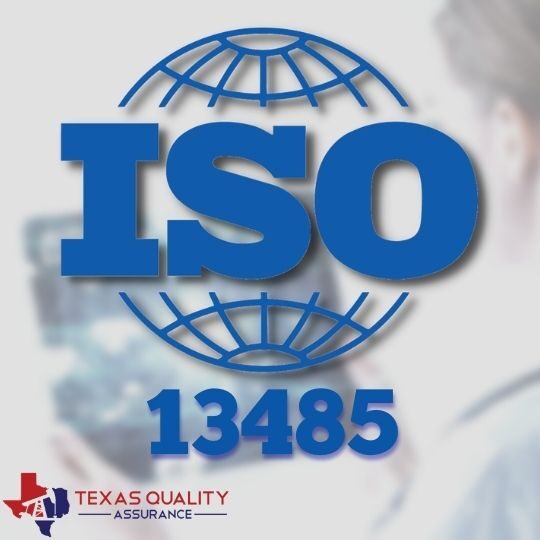Elevate Your Energy Sector Compliance & Quality Today
Unlock excellence in compliance and quality management with Texas Quality Assurance. Discover how our expert services can propel your projects to the forefront of the industry.

ISO 13485 specifies requirements for a quality management system where an organization needs to demonstrate its ability to provide medical devices and related services that consistently meet customer and applicable regulatory requirements.
ISO 13485 is the ideal management system for medical device manufacturers or suppliers who are looking for opportunities to grab new markets, conformity with regulatory requirements is a mandate. If you are one of those entrepreneurs who want to avail the competitive advantages in the medical device manufacturing industry, ISO 13485 certification is an ideal choice for you!
Safety and quality are non-negotiable in the medical devices industry, that’s where ISO 13485 comes into play.
Regulatory requirements are increasingly stringent throughout every step of a product’s life cycle, including service and delivery. Increasingly, organizations in the industry are expected to demonstrate their quality management processes and ensure best practice in everything they do. This internationally agreed standard sets out the requirements for a quality management system specific to the medical devices industry.
An ISO 13485 management system standard into your business represents good management practice, or in the case of medical devices “Good Manufacturing Practice (GMP).”
While it remains a stand-alone document, ISO 13485 is generally harmonized with ISO 9001. A principle difference, however, is that ISO 9001 requires the organization to demonstrate continual improvement, whereas ISO 13485 requires only that the certified organization demonstrate the quality system is effectively implemented and maintained. Additionally, the ISO 9001https://texasqa.com/iso-9001-certified-quality-management-system/ requirements regarding customer satisfaction are absent from the medical device standard.
Other specific differences include:
1. the promotion and awareness of regulatory requirements as a management responsibility. Examples of market-specific regulatory requirements include 21 CFR 820, the Quality System Regulation for medical devices sold in the United States, enforced by the U.S. Food and Drug Administration (FDA), or the Medical Devices Directive 93/42/EEC, required for doing business in the European Union
2. controls in the work environment to ensure product safety
3. focus on risk management activities and design control activities during product development
4. specific requirements for inspection and traceability for implantable devices
5. specific requirements for documentation and validation of processes for sterile medical devices
6. specific requirements for verification of the effectiveness of corrective and preventive actions